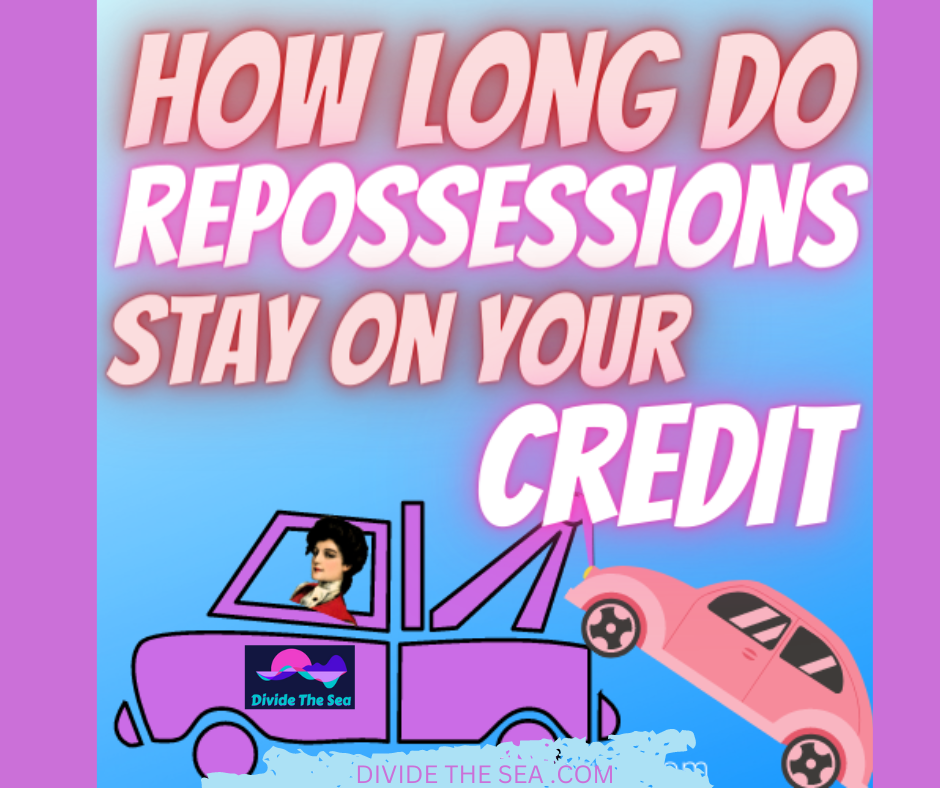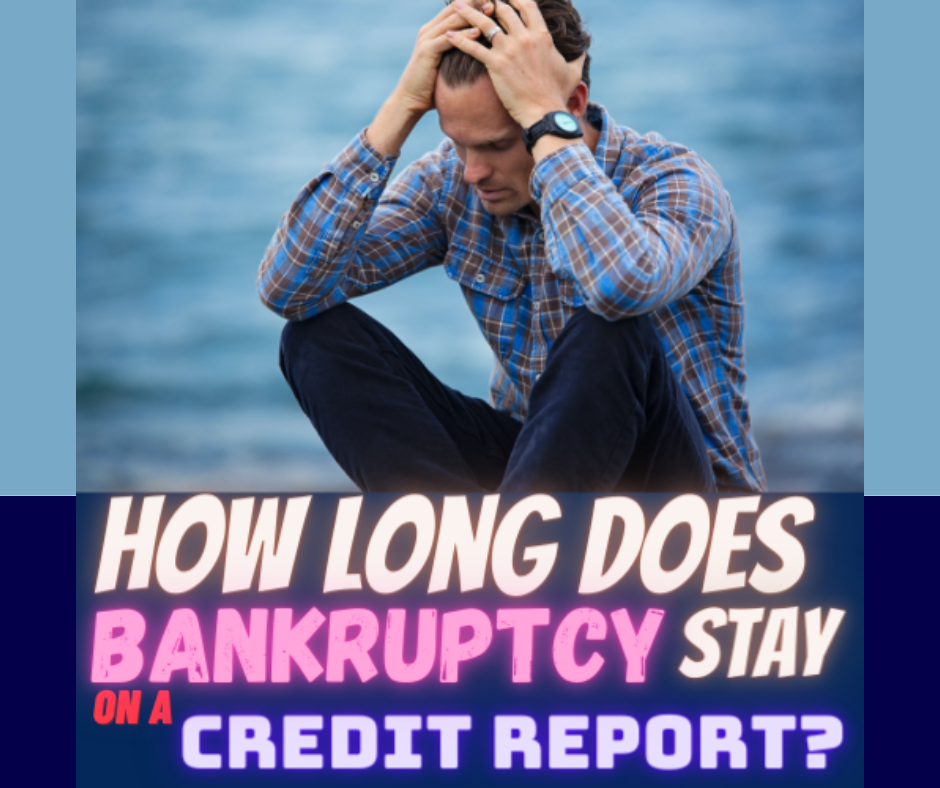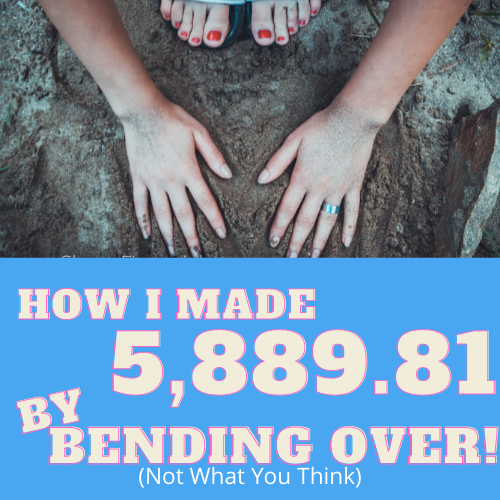By: Michael Sava
DISCLOSURE: This post may contain affiliate links, meaning this site may receive a commission if you decide to make a purchase through my links, at absolutely no cost to you. This please read my affiliate disclosure page for more information. Also, please read our article disclaimer

Your credit score is one of the most important factors used to determine your level of future borrowing capacity. It’s calculated with a number of different factors, including your credit history and how much debt you carry. But there are many other things that can affect it too, like the length of time you’ve had your accounts open, the types of accounts you have, and whether you pay your bills on time.
You might know that some credit-related events stay on your report for seven years after they occur. But what about repossessions? Do they stay on my report forever or just for a limited amount of time? Well, let’s find out together!
What is a Credit Score?
A credit score is a number that is used to determine how lenders will lend you money. It’s calculated with a number of different factors, including your credit history and how much debt you carry.
The three main factors that go into calculating your credit score are:
Your payment history: How often you pay your bills on time and the amount of debt you’ve carried over time.
How long you’ve held an account open: The length of time you’ve had a particular account open can affect your score.
The types of accounts you have: If you have more than one type of account, it might affect the average age and average balance for all accounts combined, which could change your overall score.
How does repossession affect my credit report?
Repossession is the taking and/or possession of something by a creditor, such as a bank, who doesn’t have the legal right to do so. In other words, if your home is repossessed, it means that you didn’t make loan payments on time or missed some payments altogether.
So how can repossession affect your credit score?
Let’s say that your credit score was already low and you had a high debt-to-income ratio. If your house is repossessed, then this will lower your credit score even more. That’s because the creditors don’t want their money to be at risk should you fall behind on payments again. They’ll hold onto their money until they know you’re back on track with your loan repayments.
This makes it difficult for people with lower credit scores to borrow funds in the future. For example, let’s say you’ve been repossessed once before and had a fairly low credit score. You could open up a new savings account or credit card in someone else’s name just to get access to cash without anyone knowing about it (hint: use an alias!). But then when you start using that account again, it’ll raise red flags and cause problems.
How long are repossessions on my credit report for?
Repossessions will stay on your credit report for seven years after they occur. They’ll be removed from your report in seven years, even if you don’t make the payment.
Repossessions are a negative debt event that happens when someone forces you to hand over ownership of your property to them. This is usually done through court order or seizure by law enforcement.
The worst thing about repossessions is that they can impact your credit score for many years after the event, even if you’ve already made payments on the debt.
How To Avoid Facing Repossessions
It is estimated that there are approximately 10 million Americans who are living in their vehicles and approximately 25 million Americans live paycheck-to-paycheck. At some point, if the trend continues, many of these people could ultimately go through repossession or lose their homes to foreclosure. What should be understood is that it can happen to any one of us, but there are ways to avoid this deadly situation before we find ourselves in it.
The best way to avoid repossession is to always keep up with your payments and remain on good terms with your lender. Although creditors do not like repossession, it is better than losing all the money that they lent you in the first place. If you miss your payments regularly or you fall behind in your payments then this will affect your credit score and it will be more difficult for you to obtain credit in the future.
How To Improve Your Credit Score
When you’re looking for a home, your credit score is one of the most important factors to consider. But when it comes to renting an apartment or buying a car, your credit score won’t be as important.
That doesn’t mean that there isn’t value in improving your credit score though! There are many types of scores and they’re not all created equal. You can have the best of both worlds with a good mix of scores that reflect your overall financial health using different methods to achieve them.
For example, you might want to work on building up your FICO score, which is sometimes referred to as the “traditional” credit score. Your FICO score is calculated by taking into account information like how much debt you carry and how often you make payments on time. It’s recommended that you pay your bills on time and avoid carrying too much debt with this type of score.
But if you want to improve other aspects of your financial health like opening new accounts or improving the length of time between bill payments, it might be worth considering an alternative type of credit score called a VantageScore® Score, which is calculated differently than FICO scores do! This means that it’ll give you more flexibility in terms of loan applications.
Conclusion
The longer you can keep repossessions off your credit report, the better your score will be.
Repossessions stay on your credit history for seven years from the date of the event. However, it’s important to note that a bankruptcy stays on your report for 10 years.
Repossessions do not appear on a credit report if you were in bankruptcy, so it’s important to make sure that it is taken care of before filing for bankruptcy.

WELCOME! My name is Michael and I am the founder of Divide The Sea. Holding me back was the many unknowns and challenges in life and future. Once I made the decision to reach my life goals, I learned how to Fix My Credit, Make Money, Save Money, and Start A Business, my life was never the same. My goal now is to educate, because I find nothing more freeing than teaching others and seeing them change their lives like never before! No matter the difficulty, divide that sea and make it to your true destination.
Categories
Click Link Below For More Articles
Credit Repair Services
Related Topics
Popular Blog Posts
About Michael
Michael is the founder of Divide The Sea. Many of us will not be educated in responsibility and preparing for the future. Michael saw this in himself and in his students. This website encourages those to divide the sea and make it to their destination. Here you can learn how to Fix Your Credit, Make Money, Save Money, and Start A Business
Please Subscribe To Our Newsletter!
















